This pandemic has been going on for over a year now, and though vaccines offer a promising indication that life may return to a "new normal" soon, the effects of this pandemic will likely last far longer than the virus itself does.
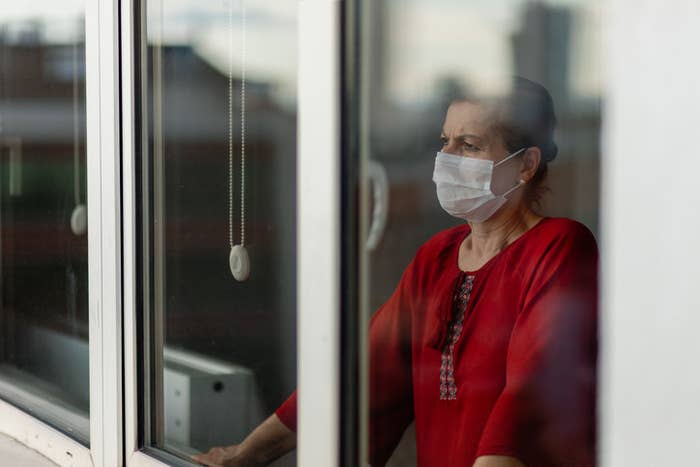
One way in which the pandemic will likely continue to affect us is through our mental health. Recently, we asked the BuzzFeed Community to tell us how the pandemic has affected their mental health. Here are some of their responses.
Warning: There are mentions of suicide, anxiety, PTSD, depression, psychosis, self-harm, abuse, racial discrimination, and eating disorders ahead.
1. "It completely exacerbated my depression, and taught me a lot of my depression actually stemmed from anxiety."
"After years of psychotherapy I finally took the step of trying medication as a tool for my mental health this year — it’s been surprisingly helpful. But generally, it has been incredibly invalidating for me to witness such a large portion of the population be actively against so much of what I believe in ... It’s hard not to take the anti-science, anti-vaccine stuff personally. I’ve had a couple of (what I thought were) close, even best, friendships completely implode. It’s revealed fundamental differences in values that I just cannot tolerate anymore. So those friendship breakups really did a number on my mental health, too — friendships that were essentially part of my identity completely fell to the wayside. Like, what’s next? Am I a horrible person for sticking to my values? ... This whole pandemic has been an onslaught of collective societal gaslighting."
—Anonymous
2. "I'm an ICU nurse. I took care of COVID patients on three different units. I can't tell you how many times I went home and bawled my eyes dry after excruciating shifts. Once they make it to critical care, they typically don't make it out of the hospital."
"Now we're seeing more post-COVID complications, and it just compounds on that grief. As a nurse, you want to see your patients do better. With COVID, that didn't happen often. It made me more nihilistic and has thrown me into one of the worst depressions of my life ... What killed me was watching people die and not being able to do a damn thing about it, and then having to explain that to families ... I still see their ghosts in every ICU room."
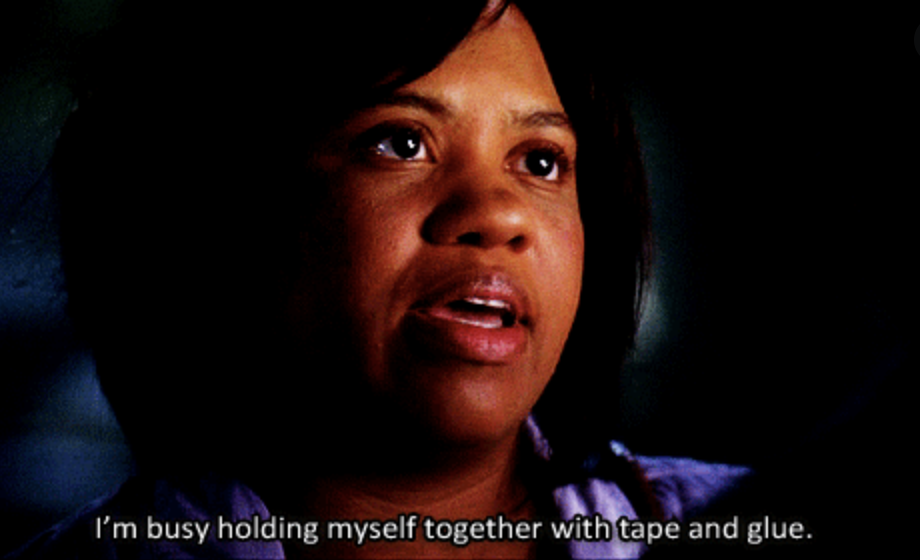
3. "Lockdown triggered my psychosis. The disruption of routine was detrimental to me, and my schizophrenia spiraled out of control."
"Then my mother died, and I've completely lost my grip on reality. Now I'm terrified of lockdown lifting and I'm terrified of going outside. People seem to have forgotten how awful it is for psychotic people. I'm constantly worried about germs, about people, about the world. This has been horrible."
4. "I have had anxiety my whole life, and had a stutter as a physical manifestation of it for most of it up until a few years ago ... With the pandemic, I feel like I lost most, if not all, my progress with my anxiety."
"[I] started tripping over my words and talking extremely fast again. I have had more panic attacks (usually at like 3 a.m.) in the last 13 months than I have had in my whole life. I gained weight (partially with not being in a routine with lots of movement everyday in quarantine and partially with the latter end of puberty), which sparked some extreme body insecurity. I am currently doing better with social interactions (it helps that I’m seeing some friends I haven’t seen in over a year) and my stutter. I still get anxiety attacks, but now more at the 'normal' frequency I used to get them. I have started doing better with my body confidence, but it’s more like the insecurity and confidence fight over who’s in charge for the day. The consequences of the pandemic on my mental health are some I will deal with the rest of my life, but at least I know it’s a shared experience."
—Anonymous
5. "I'm an autistic woman in my thirties who works in the service industry. In the past 12 months, I've spent five of those isolated and unemployed. I recently told a coworker that I feel like I've lost the past five years of therapeutic progress in just a year."
"My social anxiety has gotten terrible, all of my tics have worsened, and I feel mentally weaker than I have, even after my worse traumatic life event."
—Anonymous
6. "The last time I wore a medical mask was years ago when SARS was the big one everyone was scared of (I kept getting chest infections and my doctor wanted me to wear one just in case). I was told to take my virus back to my country, and people gave me the worst looks and would move if I stood or sat by them."
"I've been genuinely terrified to wear a mask, especially with the rise in anti-Asian violence, and when I do I have gotten looks and a few people telling me to go back where I came from. Watching the rise in racial violence, dealing with a pandemic, planning and executing a tiny wedding, and being around vulnerable people all the time has made my anxiety a million times worse ... I'm so tired of being scared."
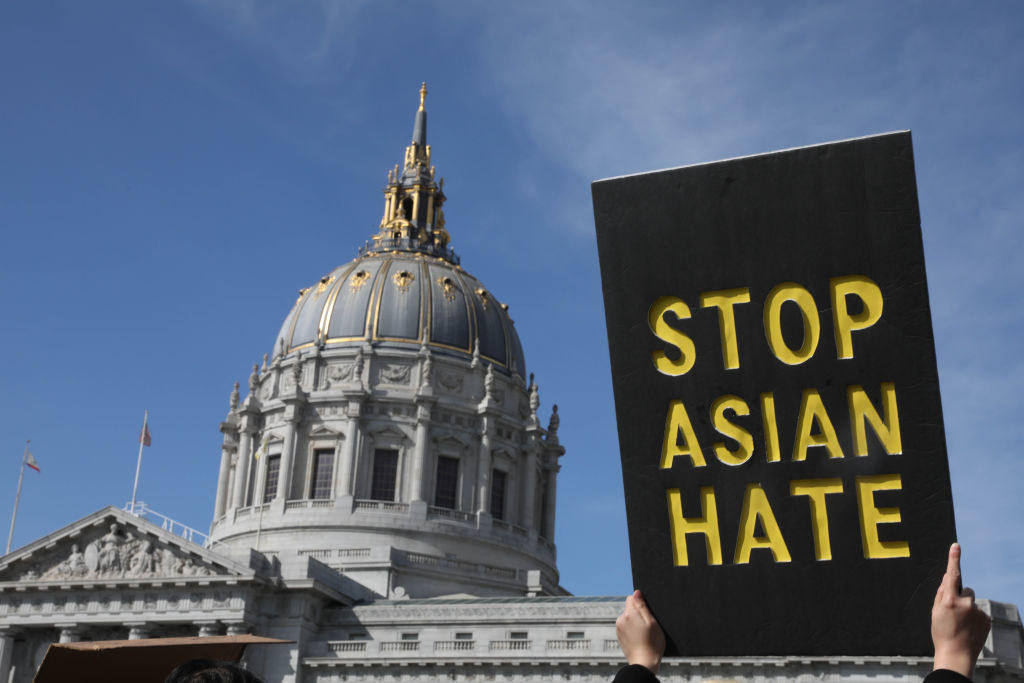
7. "I have mild PTSD from a near-fatal car accident, and the last year was very hard. I’ve become claustrophobic as well since my trauma was from being crushed inside a car, so being very limited on where I could go was uniquely difficult."
"I have always coped with my bad days by getting out of the house and going to dinner, or a friend’s house to decompress ... Not being able to do anything forced me to feel trapped in my home with my own thoughts and had my anxiety level soaring. Add to that hearing about so many deaths — I was worried about every person I know getting COVID. Hearing about other people dying young gives me a strange sense of survivor's guilt, even though the incidents are unrelated."
8. "I became severely agoraphobic and had a huge relapse in my anxiety, with huge physical effects. I was unable to eat, barely slept, couldn’t focus on my university lectures and assignments, and couldn’t leave my house."
"I've started on some new medication and CBT, and it seems to be working! On our way up."
9. "I relapsed into self-harm. I had been 'clean' for almost two years and I felt like an absolute failure."
"It is something I have been struggling with for a very long time and the absence of a support system during the pandemic definitely played a huge role. I didn’t give up though. I decided to give myself another chance and went back to therapy. I am making progress now."
—Anonymous
10. "Overall, bleak. I'm school staff at a small elementary school in Minneapolis. Losing my purpose last March was bad. I love my job and get a lot of personal fulfillment. To have that taken away was rough. So I had nothing to do until we started a program handing out food. But it started to snowball when all the programs my special needs child depended on started to get canceled."
"About a month into quarantine, my nephew passed away three months before his due date. Due to restrictions, we couldn't have a funeral until June. Shortly before his funeral, George Floyd was murdered. I still haven't seen the video. I don't need to. Buildings were still smoking when we went back to handing out meals. Tent cities were popping up in city parks; other staff were hearing bullets near their sites. It really felt like we were risking our health (and family's), and our supervisors didn't want to see it ... Halfway through the summer, I had my doctor increase my antidepressants. And I'm currently in therapy. But in a nearby town, Daunte Wright was killed. And there's been riots ... I feel nothing will ever surprise me again. Just shell-shocked."
—Anonymous
11. "I am absolutely exhausted when I have to be out of the house and interacting with other people for too long. I used to be able to do a full day of errands, followed by dinner and a movie with friends and dancing, and come home feeling happy and satisfied. Now? Exhausted, irritable, and cranky after just going to the bank."
"My patience for rudeness has also completely disappeared (I don't consider this a bad thing, lol). I am VERY combative now with rude strangers rather than just being the 'bigger person' and letting it go. I am seeing a therapist for it, and she actually mentioned that this has been a common thing amongst her other patients since things have reopened."
12. "In November 2020, I was diagnosed with COVID-19 ... I had to call an ambulance for myself. I was admitted for five days due to COVID-19 and double pneumonia ... I remember my first night there I said to one of the nurses, 'This isn’t supposed to happen, I’m only 24.'"
"Thankfully, I healed pretty fast physically, but I’ve struggled mentally since then. I’ve recently been diagnosed with anxiety and depression, and [received] a prescription for Prozac. If anything, this year taught me that literally anything can happen and I won’t always have control and that has to be okay."
13. "I’ve had depression and an anxiety disorder for over a decade and didn’t think lockdown was affecting me, as it didn’t fundamentally change my routines ... Now I realize that I just sank further into isolation and avoidance, so much so that my first time leaving home in over two months triggered my first ever panic attack."
"And now I have the added stress of how my mind/body will react next time I try. It feels worse knowing that I had a comparatively 'good' lockdown: no insecurity about housing or other difficulties experienced by so many. I just didn’t realize it was causing harm being restricted to my 'safe place,' as much as I preferred and felt protected being there at the time."
14. "It has been really difficult. I suffer from anxiety anyway so it’s just exacerbated it. I thought I was doing quite well, then recently I’ve been hit with every anxiety side effect I get: headaches, heart palpitations, IBS symptoms, and depression."
"I’ve had to take a lot of time off work (I’m a special needs teacher) and I’m on new medication to try and help me cope. If it wasn’t for my girlfriend, I think I would have been in a really bad place. It’s been so stressful supporting the children at school and at home and helping parents cope with their kids at home for such a long time with their complex needs."
—Anonymous
15. "My husband and I had our second child a month into the initial shelter-in-place (April 2020). Because my husband works outside the home, that meant I was stuck at home, taking care of two kids (a preschooler and a newborn) while also trying to work from home, with only part-time childcare from my parents."
"Trying to make an impossible situation possible, I developed a severe case of postpartum depression and anxiety. It was a level of burnout that I have never known before. After months of suffering, I connected with a therapist online (using BetterHelp) ... I don’t know where I would be without her. Things are still incredibly difficult (because my work and childcare situations have not changed), but I’m handling it much better."
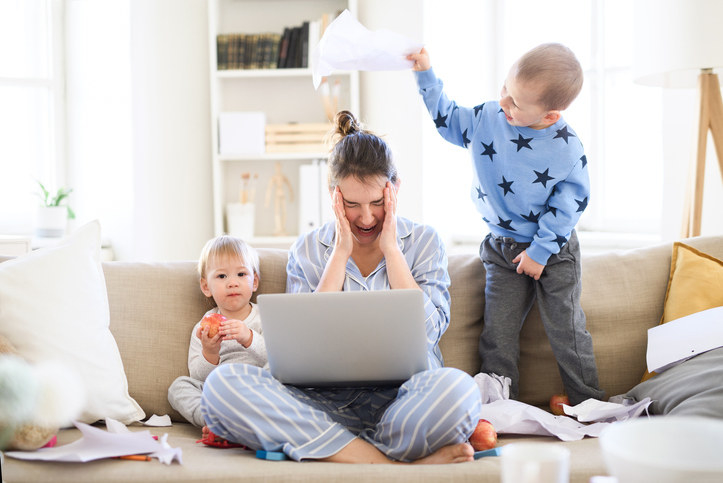
16. "I'm completely burnt out, but I'm not a healthcare worker or anything like that, so I feel guilty about having such a hard time when I know lots of people have it worse than me."
"I've also been really angry, and I'm never usually angry so I don't really know how to deal with it, but the other day some people came right up to my daughter in the park, no distancing, no masks. I swear I was ready to throw hands to get them away from her. We ended up going home because I was too stressed. I'd happily stay in forever, but that wouldn't be fair on my daughter."
17. "I have developed social anxiety and it has caused me so much pain. It's impossible to stay socialized and stay in touch, and whenever I do get the possibility to see someone, I turn it down because it would be too damn anxiety-inducing that I couldn't handle the situation."
"The awful thing is I'm a really social person, and I love my friends and family, but my newly developed social anxiety is making me hide myself and close of all connections because it's too difficult! It's impossible and I'm scared."
(Thank you to buddleia for her suggestions to use an online forum for social anxiety disorder, set small goals every week like saying hi to a neighbor, and having a "champion" who holds you accountable and is there for you in your goals!)
18. "I had my first baby in May 2020. The collective impact of my last trimester being spent in isolation and terrified of catching COVID, plus restrictions on birthing partners, plus no visitors or support after the birth, meant I had (and still have) terrible post-natal depression and anxiety."
"As a first time mom, your family, friends and other new moms are your support network for all those, 'OMG is this normal?', 'Am I doing it right?!' moments. Or even to just take over for a few hours so you can some rest. There’s been none of that. My son and I have just figured it out as we go along. I’m blessed with him, but I lost count of the amount of hours I’ve spent over the last year sobbing whilst he’s asleep and thinking I’ve failed him."
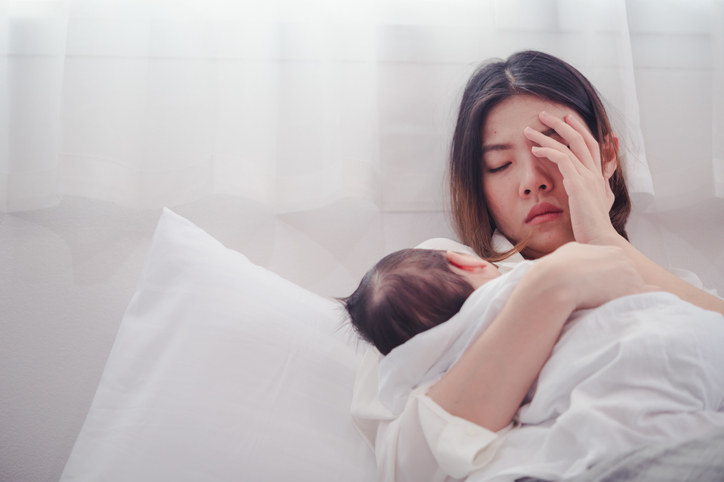
19. "About a month into the lockdown, I had a breakdown where I wanted to kill myself, and so I had to move back in with my parents for two weeks. I was living with my (then) fiancé at the time, and I came to realize that my anxiety and depression was coming from having to live with him ... I eventually found the courage a couple of months later to break up with him."
"Since then, my mental health has improved and I would say the pandemic has helped. It’s given me time to finally put goals I want to achieve in my life, and given me the space away from him to get my life back on track. I’ve gone from nearly crying everyday and wanting to die, to feeling alive and happy again!"
—Anonymous
20. "During the first wave I ended up in a mental hospital due to psychotic episodes."
"The doctors think I'm either bipolar or schizophrenic; they haven't actually diagnosed me yet ... I wasn't able to have visitors so it felt really lonely and I felt completely disconnected from real life. Luckily, I managed to get out after around a month, but it took a higher dosage of anti-psychotics and real strength to get back to a healthier state of mind. Since then I have tried really hard to get out of the house more, even if it's just for a walk around my town ... Don't feel inadequate if you need support with your mental health, it's way more common than you think."
21. "Very negatively, but due to that, I was able to really pinpoint what was wrong with me. I was diagnosed as bipolar and am finally on the correct medication.
"I'm still not feeling great, but I'm definitely feeling more balanced. If the pandemic hadn't made me realize how I felt horrible at all hours of the day, it would have taken way longer for me to get the accurate help that I need. So, fuck the pandemic, but thanks."
22. "The past few years my mental health went way down for a variety of reasons. When the pandemic hit and I became isolated, my mental health got 100x better."
"I wasn't constantly being bullied by my friends, my anxiety decreased, and I started to eat two meals a day for the first time in a few years."
23. "It’s actually been positive for me. I was diagnosed with anorexia just before lockdown. It meant my mom could supervise me 24/7 to make sure I was following the treatment meal plan rather than going into a unit."
"I created a routine, learned crochet, and felt better than I ever have before. It’s coming out of lockdown that’s been tough and having to let go of what I’ve become so used to. Lockdown was my safe haven."
—Anonymous
24. "I’ve suffered from anxiety and depression for over 20 years ... I was in total shock and panicked that my mental health would deteriorate in March last year, but after a few months, I calmed down and spending a lot more time with myself (my biggest fear!) actually has given me the time to reflect and work through the reasons I suffered from anxiety in the first place."
"I have distanced myself from people who I gravitated towards because I thought they suffered as much as I did and I wanted to befriend them, and focused on what and who I wanted to be instead. The whole experience has given me a lot of perspective and I finally feel like I’ve had the space to work through all of my issues, without the noise of expectation of everyday life."
—Anonymous
25. "A blessing in disguise. I suffered with PTSD prior to lockdown ... I've had the time to work on myself, I've learned new things about myself, I've learned what I like and dislike and not to go along with what society deems normal, [and] more importantly I've learned to say no and to say yes too."
"I've learned to enjoy my own company. My home now feels like a safe space and I've learned to enjoy the area that I live in ... I've learned what toxic behaviors are, both in myself and in others, and how to squash and avoid in a healthy way. I've learned I don't need approval from a single person to do something I enjoy."
26. "I’ve actually improved."
"I’m a lot more open, I’ve accepted myself for who I am a lot more and am more comfortable in my own body. In the past I had self-harmed, considered suicide and had always been insecure with my body shape and weight. I think the time away from school and out of view from the world has let me refocus and helped me learn to love myself, and while I’m still not perfect, I’m working on accepting that."
27. And finally..."I have CPTSD and all the anxiety. I'm over 30 and this has been the best year of my life."
"It has given me the time I needed to work on myself and made me realize that I have been forced into socializing for way too long. I'm loving the peace and quiet and I feel safe knowing that no one will try to hug me or show up on my door unannounced. Social distancing is a blessing. Also, less people EVERYWHERE. I love it. My anxiety has decreased by like 40%. I've quit heavy meds and I've maintained my sobriety ... Since the pandemic I have learned to stay true to myself. Nobody will ever be able to pressure me to socialize again. Boundaries have been cemented. That's pretty amazing."
If you're having trouble coping with your mental and emotional health, please reach out and make use of the resources below.
The National Alliance on Mental Illness is 1-888-950-6264 (NAMI) and provides information and referral services; GoodTherapy.org is an association of mental health professionals from more than 25 countries who support efforts to reduce harm in therapy.
In addition, the National Suicide Prevention Lifeline is 1-800-273-8255. Other international suicide helplines can be found at befrienders.org. The Trevor Project, which provides help and suicide-prevention resources for LGBTQ youth, is 1-866-488-7386. You can also text TALK to 741741 for free, anonymous 24/7 crisis support in the US and UK from the Crisis Text Line.
If you or someone you know is struggling with substance abuse, you can call SAMHSA’s National Helpline at 1-800-662-HELP (4357) and find more resources here.
And finally, the National Eating Disorders Association helpline is 1-800-931-2237; for 24/7 crisis support, text “NEDA” to 741741.
Note: Responses have been edited for length/clarity.
